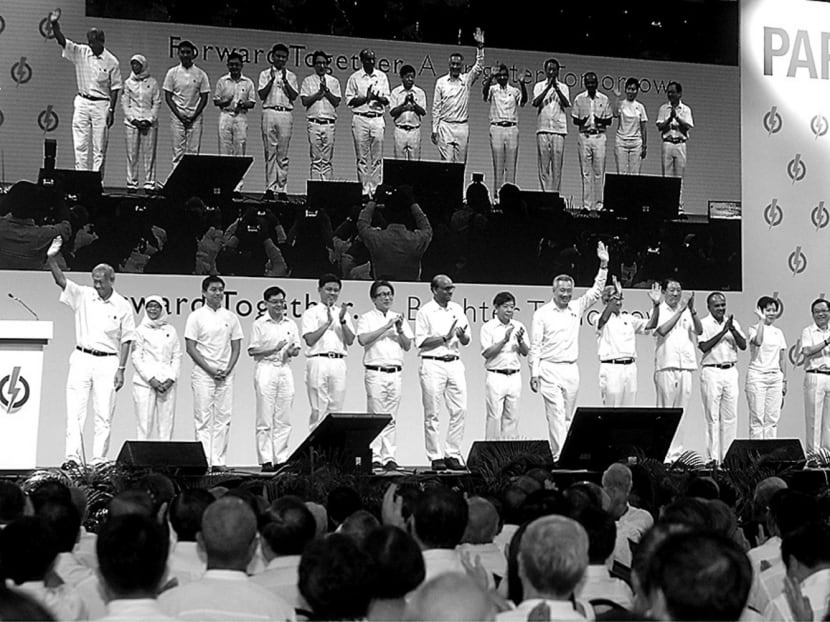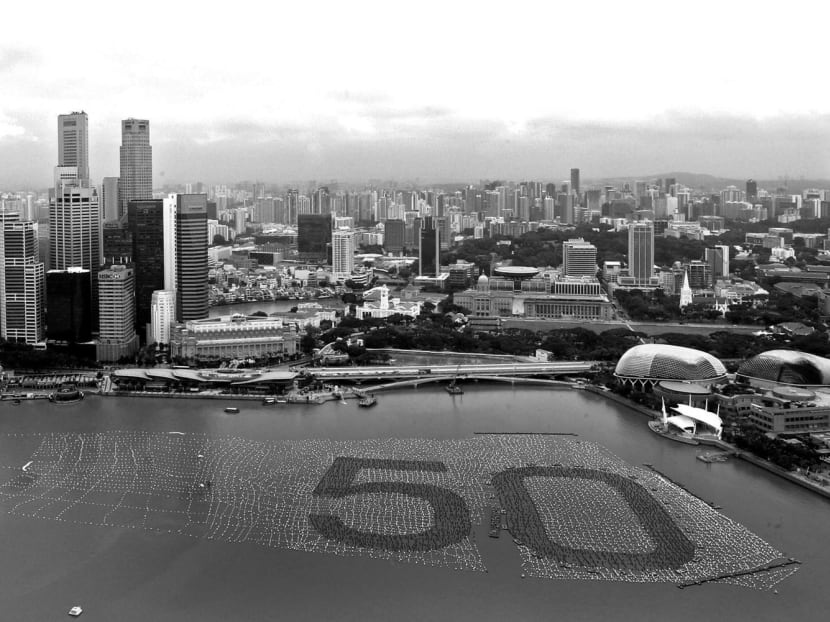Short campaign period unlikely to work in PAP’s favour
Today’s parliamentary sitting may very well be the 12th Parliament’s last. There are no pending nor urgent legislative matters. No new Bills will be introduced today, as Singapore gears up to go to the polls, expected to be called in less than a month’s time.


Today’s parliamentary sitting may very well be the 12th Parliament’s last. There are no pending nor urgent legislative matters. No new Bills will be introduced today, as Singapore gears up to go to the polls, expected to be called in less than a month’s time.
All that is left after today’s sitting is for the Prime Minister to advise the President to dissolve Parliament. The President would do so via a Proclamation published in the Government Gazette. A Writ of Election is usually issued on the same day as the Proclamation.
If the General Election (GE) is to be held on Sept 12 as speculated, then Parliament will have to be dissolved by Aug 28 at the latest as the Constitution requires a minimum interval of five days between Parliament’s dissolution and Nomination Day.
Going by past practice, however, Nomination Day is usually scheduled a full week after Parliament is dissolved. If this practice is maintained, Parliament will have to be dissolved on Aug 26 for Nomination Day to be on Sept 2.
Roller-coaster ride
Under Singapore’s election laws, campaigning can extend to 55 days, with the minimum being nine days. If nine days of campaigning are declared in the election writ, formal campaigning — with rallies, house visits, walkabouts — will take place between Sept 2 and 10. Cooling-off Day will be on Sept 11, followed by Polling Day on Sept 12.
Given the speed, if not haste, with which the ruling People’s Action Party (PAP) is announcing its line-ups for the yet-to-be announced GE, it should come as no surprise that we are on the cusp of a roller-coaster ride in the weeks ahead.
This election timeline would mean Parliament being dissolved a mere three days after the National Day Rally on Aug 23. Singaporeans cannot be blamed if their attention on Prime Minister Lee Hsien Loong’s state of the nation speech is focused more on picking out election bits than on Singapore’s future for the next 50 years and beyond.
In Parliament last month, Mr Lee had indicated that “to the maximum extent possible, we (the Government) will make sure that there is enough time elapsed so that everybody can read the report (of the Electoral Boundaries Review Committee or EBRC), understand it and know where they stand before elections are called”.
For the PAP, it is clear that sufficient time has elapsed since the EBRC report’s release on July 24. In the past, a GE was called anywhere from one day to eight weeks from the EBRC report’s publication. So a Sept 12 poll date is within the norm.
In fact, on Aug 10, just a day after the country’s Jubilee celebrations, PAP’s organising secretary Ng Eng Hen declared that “we are in election season”.
The national mood has quickly changed from one of celebration, pride, unity and reflection to one characterised by combativeness and partisanship as parties begin trading political barbs and taking potshots at one another.
Is such an expedited timeline desirable — for Singapore, for the PAP — given the more competitive political landscape and a changing electorate?
Country at a crossroads
GE 2011 was touted as a “watershed” election as the PAP scored its lowest percentage of vote share and lost a Group Representation Constituency for the first time.
GE 2015 will arguably be even more keenly contested.
The forthcoming GE will provide a stronger indication as to whether Singapore is moving away from a political system dominated by one party towards one with greater roles for two or more parties.
In GE 1991, after Singapore’s first changeover of political leadership, the Opposition won four seats. The PAP clawed back two seats in GE 1997. Between 1997 and 2011, the Opposition was kept at bay with two elected seats.
Will the Opposition, especially the Workers’ Party, consolidate and build on its gains in GE 2011, or will the PAP win back the seven seats held by the Opposition now?
Second, the forthcoming polls will be the first election since independence (or, further back, since 1955) in which the late founding Prime Minister Lee Kuan Yew will not feature as an election candidate. This may also well be former Prime Minister Goh Chok Tong’s last election, as leadership renewal gains pace. This changing of the guard is significant. Today’s electorate has more younger voters, especially those born post-independence, than those born pre-independence. For this young vote bank, Singapore’s “Third World to First” story, for which the PAP has earned itself a lot of credit, does not have as much resonance as with their parents or grandparents.
Younger voters know only of a First World Singapore, and expect the Government of the day to maintain and improve both the standard of living and quality of life. They are also less enamoured of a one-party-dominant system and are inclined towards more political diversity and contestation.
The PAP has its work cut out for it, in this regard. The short hustings period is unlikely to work in its favour.
Third, Singapore is at a crossroads politically, economically and socially. The political choices voters make today will have a significant impact in the near and distant future. Even while the PAP speaks of putting in place the fourth-generation leadership for Singapore, the fact is that the country is in uncharted waters geopolitically and economically.
While nine days of campaigning has been the norm, the political landscape today is very different, and the issues confronting Singapore are markedly more complex and consensus is harder to arrive at.
The PAP’s first assistant secretary-general, Mr Teo Chee Hean, noted last Friday the “sound and fury” of the hustings. Mr Teo, who is also Deputy Prime Minister, added that the crux of the polls was about choosing a leadership whom Singaporeans can work with and trust.
Given the weighty matters at stake, the very intense but short period of nine days of election campaigning will not enable Singaporeans to fully debate, deliberate, and consider the challenges ahead and how to tackle them. If anything, as recent previous elections have so vividly demonstrated, emotions can get easily whipped up in the heat of the hustings.
Neither will it allow voters to get to know the opposition parties and their candidates better. All competing parties ought to be subjected to intense scrutiny. Elections are not mere administrative exercises to select our representatives. They should instead engage Singaporeans on the various key issues that intimately affect Singapore’s future, and for Singaporeans to hear and ponder what various political parties have to offer. They should pull society closer together, and not open up divisions.
A short campaign period will tend to emphasise form rather than substance, rhetoric rather than rational reasoning, and one-upmanship rather than leadership. In essence, the nine-day norm is wholly inadequate in today’s political landscape. And given that Singapore is at the crossroads, it does not work to the advantage of Singapore and Singaporeans.
ABOUT THE AUTHOR:
Eugene K B Tan is associate professor of law at the Singapore Management University School of Law.






